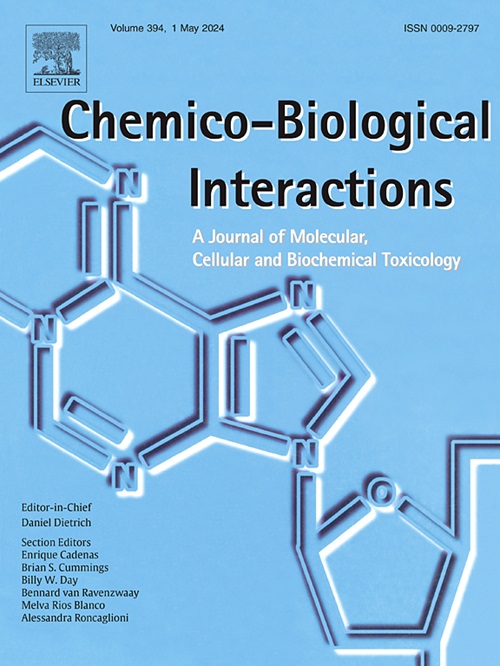Ilimaquinone通过抑制转录3通路的信号转导和激活因子诱导胃癌细胞凋亡
IF 4.7
2区 医学
Q1 BIOCHEMISTRY & MOLECULAR BIOLOGY
引用次数: 0
摘要
天然海产品具有药理作用,几个世纪以来一直是新药的来源。在本研究中,我们探讨了一种来自海洋海绵的倍半萜醌类药物伊利马醌对胃癌的抗肿瘤活性及其作用机制。培养3株胃癌细胞系(KATO III、SCM-1和AZ521)。采用3-[4,5-二甲基噻唑-2-基]-2,5-二苯基溴化四唑试验和流式细胞术检测细胞活力、细胞周期和凋亡。western blotting检测凋亡蛋白、自噬相关蛋白、转录信号传导和激活因子3 (STAT3)水平。通过瞬时转染实验检测胃癌细胞中STAT3的表达情况。Ilimaquinone抑制细胞生长,使细胞周期阻滞在S期,诱导细胞凋亡。此外,ilimaquinone调节自噬,胃癌细胞的活力在暴露于自噬抑制剂氯喹的组合后降低。值得注意的是,ilimaquinone在两种胃癌细胞系中均以浓度和时间依赖的方式下调p-STAT3的表达。此外,通过异位STAT3的表达,恢复了化合物介导的胃癌细胞增殖抑制。总的来说,这些发现证明了伊利喹酮在胃癌治疗中的价值。本文章由计算机程序翻译,如有差异,请以英文原文为准。
Ilimaquinone induces apoptosis in gastric cancer cells by inhibiting the signal transducer and activator of the transcription 3 pathway
Natural marine products possess pharmacological effects and have been a source of novel drugs for centuries. In this study, we explored the anti-tumor activity and underlying mechanism of action of ilimaquinone, a sesquiterpene quinone from marine sponges, in gastric cancer. Three gastric cancer cell lines (KATO III, SCM-1, and AZ521) were cultured. Cell viability, cell cycle, and apoptosis were determined using 3-[4,5-dimethylthiazol-2-yl]-2,5-diphenyl tetrazolium bromide assay and flow cytometry. The levels of apoptotic proteins, proteins related to autophagy, and signal transducer and activator of transcription 3 (STAT3) were detected using western blotting. Transient transfection experiments were conducted to assess the expression of STAT3 in the gastric cancer cells. Ilimaquinone inhibited cell growth, caused cell cycle arrest in the S phase, and induced apoptosis. In addition, ilimaquinone modulates autophagy, and the viability of gastric cancer cells decreases upon exposure to a combination of the autophagic inhibitor, chloroquine. Notably, ilimaquinone downregulated the expression of p-STAT3 in a concentration- and time-dependent manner in both gastric cancer cell lines. Moreover, the compound-mediated inhibition of gastric cancer cell proliferation was restored by ectopic STAT3 expression. Collectively, these findings demonstrate the value of ilimaquinone in the treatment of gastric cancer.
求助全文
通过发布文献求助,成功后即可免费获取论文全文。
去求助
来源期刊
CiteScore
7.70
自引率
3.90%
发文量
410
审稿时长
36 days
期刊介绍:
Chemico-Biological Interactions publishes research reports and review articles that examine the molecular, cellular, and/or biochemical basis of toxicologically relevant outcomes. Special emphasis is placed on toxicological mechanisms associated with interactions between chemicals and biological systems. Outcomes may include all traditional endpoints caused by synthetic or naturally occurring chemicals, both in vivo and in vitro. Endpoints of interest include, but are not limited to carcinogenesis, mutagenesis, respiratory toxicology, neurotoxicology, reproductive and developmental toxicology, and immunotoxicology.

 求助内容:
求助内容: 应助结果提醒方式:
应助结果提醒方式:


